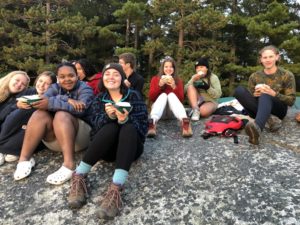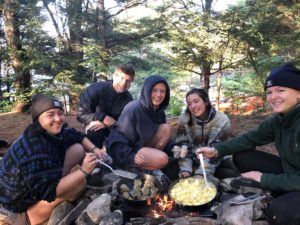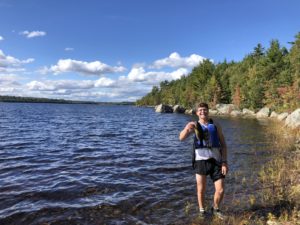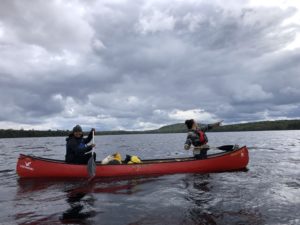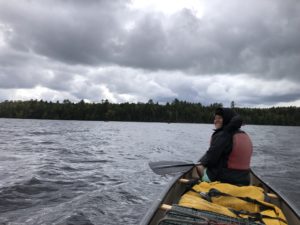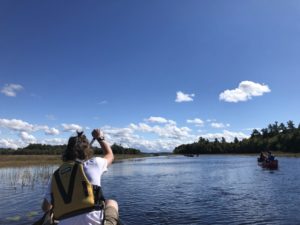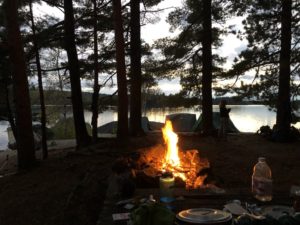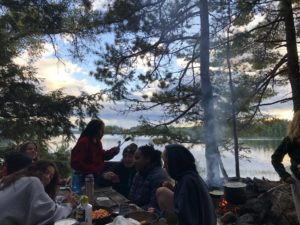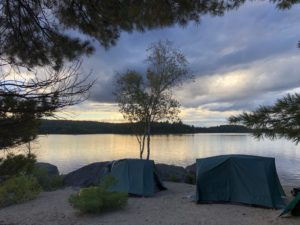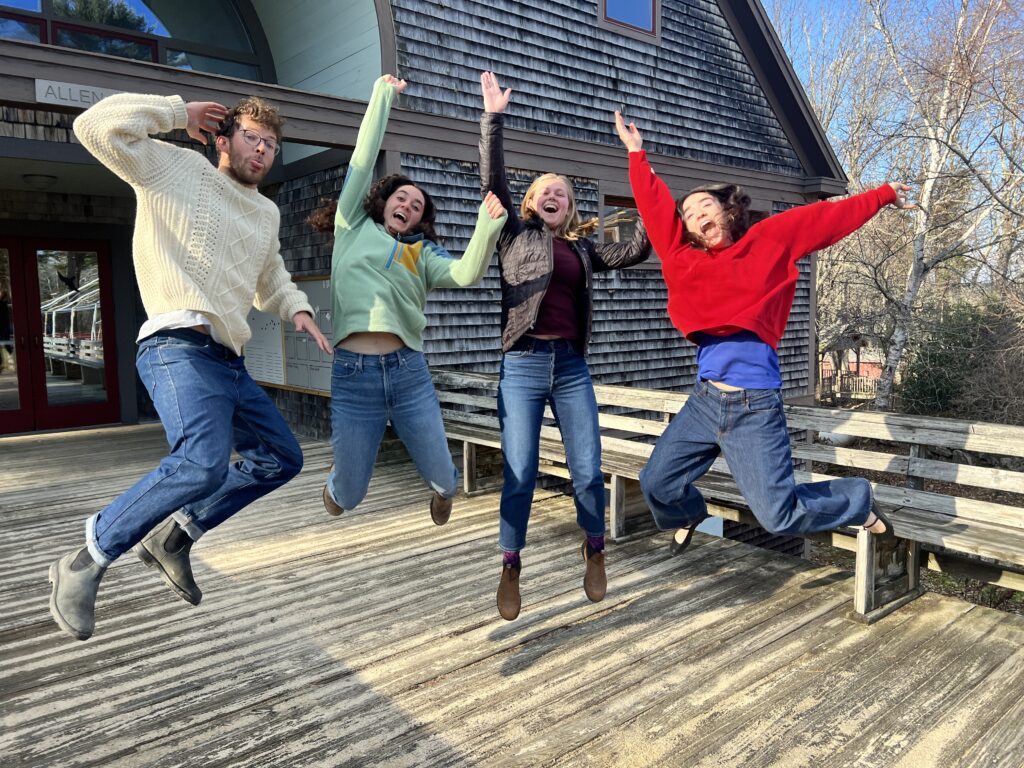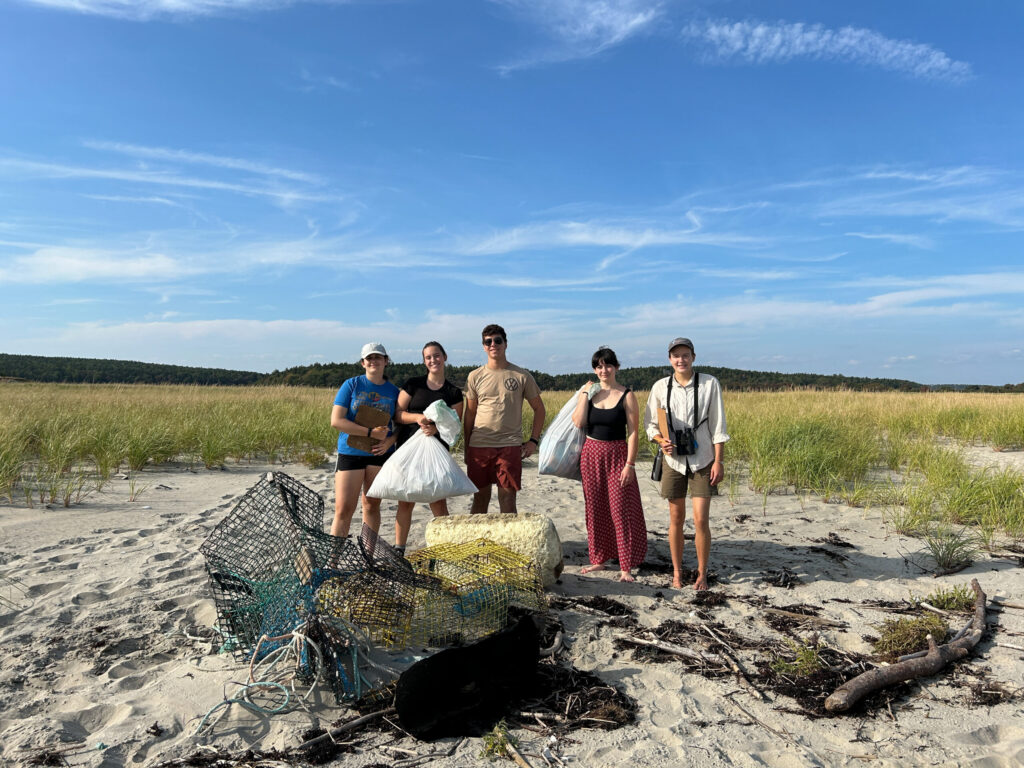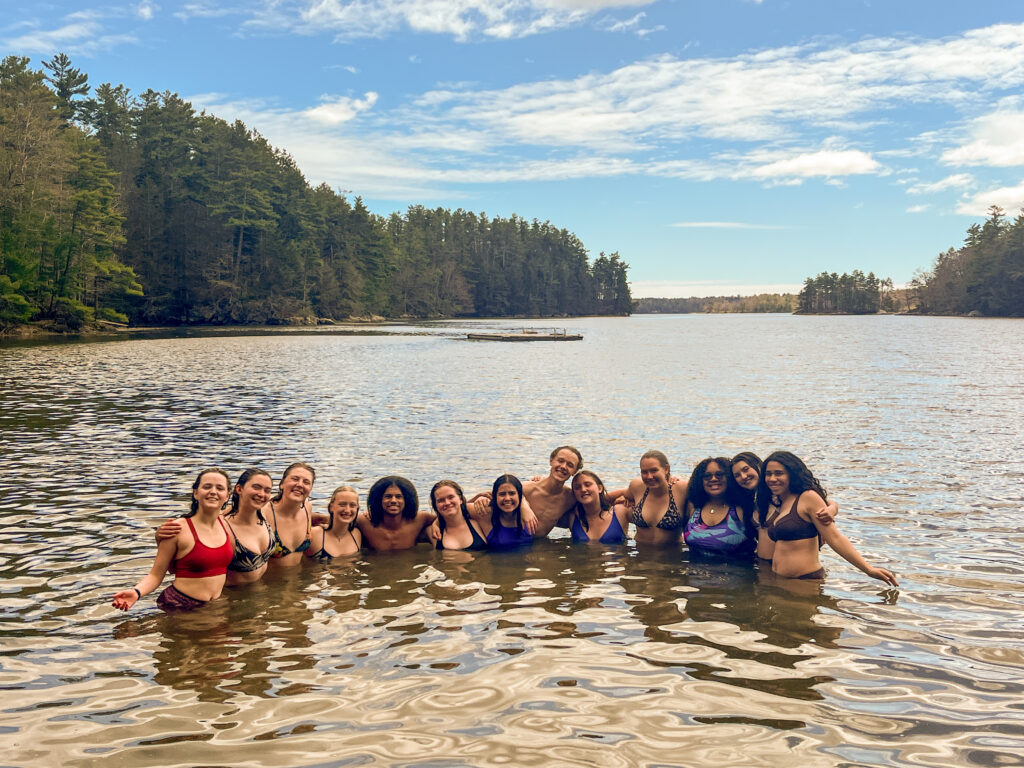Almost two weeks ago exactly, we each set out on our backcountry expeditions, five groups of students and faculty leaders each parting ways to set out into the backcountry for five days straight of camping and the great outdoors. I was lucky enough to be put into the West Grand Lake group, affectionately called Wiggle by the ten of us students and our two trip leaders, Grace and Max. We all agree that our trip was decidedly the best out of all of them (but so does every other trip), and I still can’t remember a time where I’ve had more fun than I did out there.
We woke up bright and early on Tuesday morning to set out into our van — we had packed all our dry packs into the trailer the day before, but we needed to secure all the canoes into the back to ensure we didn’t lose any during our five hour journey up into northern Maine. The ride itself was an adventure of its own. One hour, we’d have music blasting through the speakers and awful sing-yelling at the top of our lungs; the next hour, we’d all be passed out cold. Many stops were made at gas stations, during which we’d be too tired to do anything but lie on the grass on the side of the highway.
Stepping out of the van for the first time and seeing the incredible scene before us was something I’ll never forget. The glassy water of Fourth Machias lake stretched out before us, inviting us to set out and paddle through the idyllic landscape. Only a couple weeks into autumn, the leaves had already begun to turn, smudges of orange and red trees dotting the distant opposite bank.
The weather that first day was perfect, with almost no waves and clear, bright blue skies. The water was completely still, and, after a bit of trouble remembering how to steer, all six boats were headed out to the canoeing adventure of our lives. We navigated across the lake with a bit of difficulty, searching for the river that would take us to our first campsite. Eventually, after following the coast a little ways, we found it, and set up camp next to a loud rushing river that we’d have to somehow get through first thing the next morning.
We unloaded our packs and the group gear (food!) from the canoes, and pulled the boats out of the water to rest overnight. We immediately set about getting our tents up, and we all decided to stake them down right next to each other close to the fire pit. We then were able to take our wet shoes and socks off and change into warmer clothes, as the day was already starting to get pretty chilly. We were split into three crews — wood crew, cook crew, and camp crew. I was put onto cook crew the first night, and first up on the menu was veggie stir fry! We cut up peppers and onions and carrots and potatoes, and cooked a huge pot of rice over the fire.
Sunset was at 6, and Max let us take a quick break to watch it. He told us that if we followed a trail a bit of the way into the woods, we’d reach an open marsh, and the sunset from there was apparently incredible. All of us dropped everything to run into the woods, and, after a quick sprint, we reached the marsh — sure enough, the view was like nothing I’d ever seen before. We must have stood there at the end of the trail, teetering on the edge of the mud, for fifteen minutes. Even as the sun reached the horizon, the colors of the sky kept changing, going from painted golds to reds and eventually to a musky purple as the stars began to appear.
Dinner that night was amazing. Max had brought every spice I could think of, and we all crowded around the table, fumbling in the dark with headlamps to find the right bottles to season our rice and veggies. With some experimentation surrounding the chili and garlic powders, most of us made it to dinner with edible, well-seasoned, bowls of fire-cooked stir fry. We ate on the beach, and, after finishing up and hand washing the dishes, we were able to stargaze right there, just feet away from our tents on the beach. It was so dark by the time we were done eating that the stars had well begun to emerge, and, deep in the backcountry with no light pollution, we saw the most incredible stretch of constellations. The Milky Way wrapped around the sky in a dusty haze, and the stars shined more brilliantly than I’d ever seen, even brighter than the stars we get at Chewonki Neck. That night, we fell asleep with the sound of the river rushing just feet away from our sleeping bags, reminding us of the new, soaking adventure that awaited the next day.
-Julie Sullivan, Milton Academy, Dover, MA

